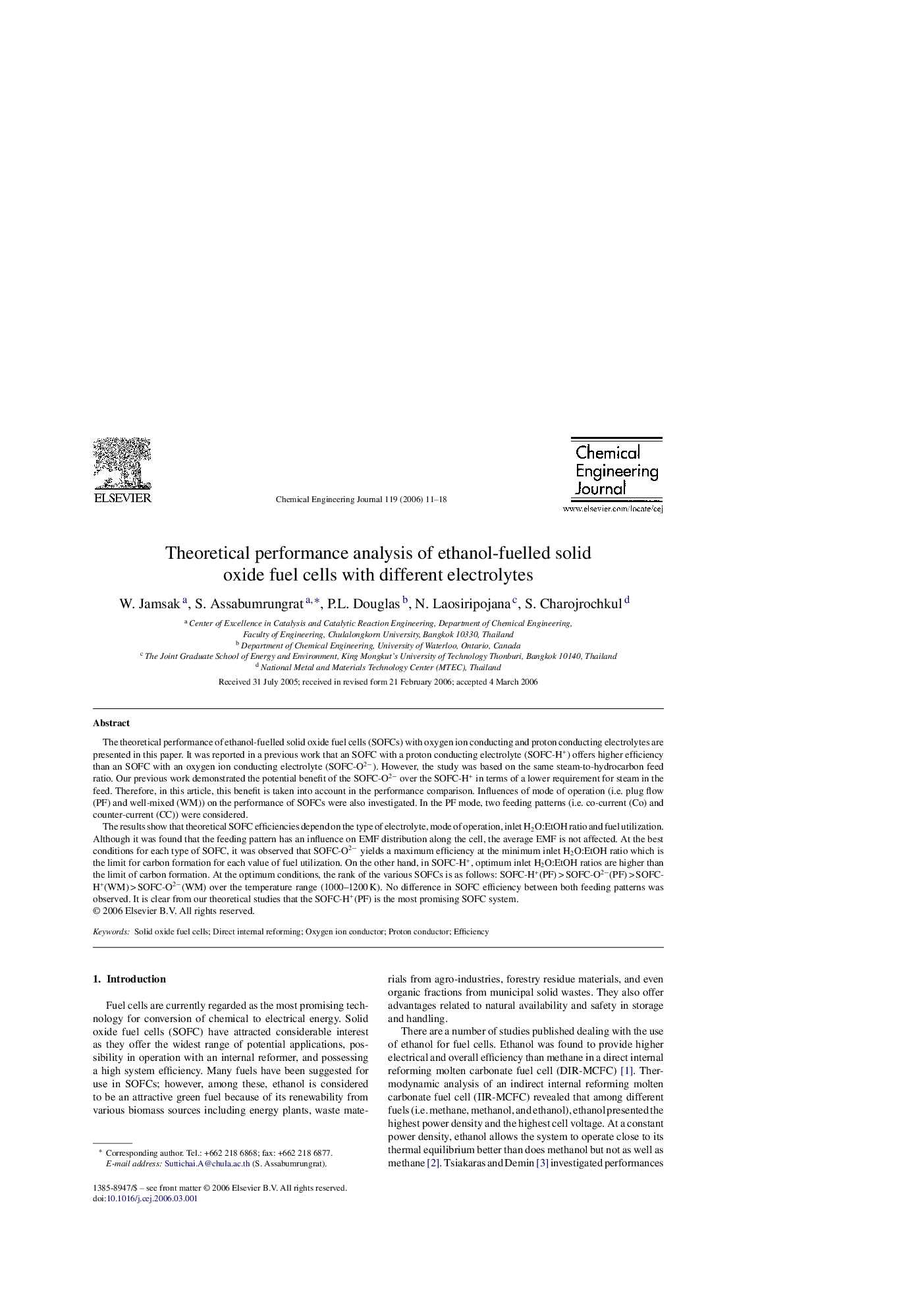| Article ID | Journal | Published Year | Pages | File Type |
|---|---|---|---|---|
| 154020 | Chemical Engineering Journal | 2006 | 8 Pages |
The theoretical performance of ethanol-fuelled solid oxide fuel cells (SOFCs) with oxygen ion conducting and proton conducting electrolytes are presented in this paper. It was reported in a previous work that an SOFC with a proton conducting electrolyte (SOFC-H+) offers higher efficiency than an SOFC with an oxygen ion conducting electrolyte (SOFC-O2−). However, the study was based on the same steam-to-hydrocarbon feed ratio. Our previous work demonstrated the potential benefit of the SOFC-O2− over the SOFC-H+ in terms of a lower requirement for steam in the feed. Therefore, in this article, this benefit is taken into account in the performance comparison. Influences of mode of operation (i.e. plug flow (PF) and well-mixed (WM)) on the performance of SOFCs were also investigated. In the PF mode, two feeding patterns (i.e. co-current (Co) and counter-current (CC)) were considered.The results show that theoretical SOFC efficiencies depend on the type of electrolyte, mode of operation, inlet H2O:EtOH ratio and fuel utilization. Although it was found that the feeding pattern has an influence on EMF distribution along the cell, the average EMF is not affected. At the best conditions for each type of SOFC, it was observed that SOFC-O2− yields a maximum efficiency at the minimum inlet H2O:EtOH ratio which is the limit for carbon formation for each value of fuel utilization. On the other hand, in SOFC-H+, optimum inlet H2O:EtOH ratios are higher than the limit of carbon formation. At the optimum conditions, the rank of the various SOFCs is as follows: SOFC-H+(PF) > SOFC-O2−(PF) > SOFC-H+(WM) > SOFC-O2−(WM) over the temperature range (1000–1200 K). No difference in SOFC efficiency between both feeding patterns was observed. It is clear from our theoretical studies that the SOFC-H+(PF) is the most promising SOFC system.
